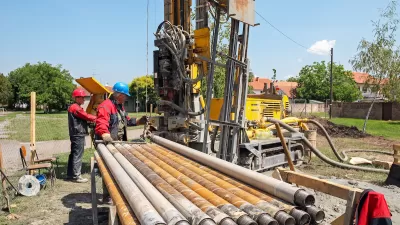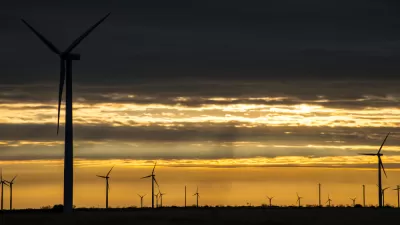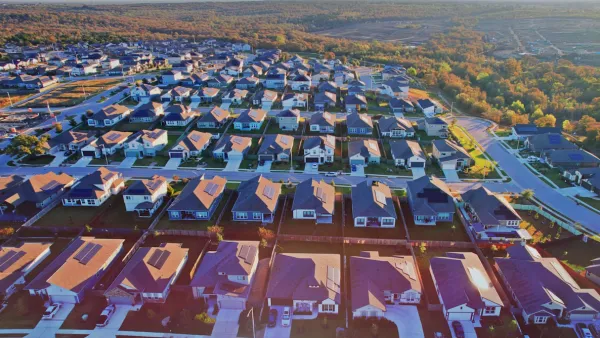Thermal energy networks can build grid resilience, provide a stable source of energy, and offer continued employment to utility workers skilled in traditional energy infrastructure.

Geothermal energy networks will soon become more available in the United States, writes June Kim in Technology Review. “In Framingham, Massachusetts, work has started on the country’s first geothermal network pilot project. Eversource, the utility company in charge, says it has completed 70% of the pipe installation and is on track to finish the project in November.” Meanwhile, New York was the first state to mandate thermal energy network projects from its largest utilities in 2022, and other states are moving forward with similar legislation.
According to Kim, “The advantages of thermal energy networks extend beyond reducing carbon emissions. Scaling them up from a few buildings to a community or utility level can also help make the grid more resilient and efficient.” This is in part because thermal energy, often acquired from waste heat, provides a more stable energy source than other renewables.
Geothermal energy networks are also attractive to unions because, unlike wind or solar installations with new and different technologies and equipment, they “rely heavily on underground piping systems, presenting an opportunity for workers with expertise in maintaining natural gas pipes to transition seamlessly into roles on those kinds of projects.”
FULL STORY: Underground thermal energy networks are becoming crucial to the US’s energy future

Maui's Vacation Rental Debate Turns Ugly
Verbal attacks, misinformation campaigns and fistfights plague a high-stakes debate to convert thousands of vacation rentals into long-term housing.

Planetizen Federal Action Tracker
A weekly monitor of how Trump’s orders and actions are impacting planners and planning in America.

San Francisco Suspends Traffic Calming Amidst Record Deaths
Citing “a challenging fiscal landscape,” the city will cease the program on the heels of 42 traffic deaths, including 24 pedestrians.

Defunct Pittsburgh Power Plant to Become Residential Tower
A decommissioned steam heat plant will be redeveloped into almost 100 affordable housing units.

Trump Prompts Restructuring of Transportation Research Board in “Unprecedented Overreach”
The TRB has eliminated more than half of its committees including those focused on climate, equity, and cities.

Amtrak Rolls Out New Orleans to Alabama “Mardi Gras” Train
The new service will operate morning and evening departures between Mobile and New Orleans.
Urban Design for Planners 1: Software Tools
This six-course series explores essential urban design concepts using open source software and equips planners with the tools they need to participate fully in the urban design process.
Planning for Universal Design
Learn the tools for implementing Universal Design in planning regulations.
Heyer Gruel & Associates PA
JM Goldson LLC
Custer County Colorado
City of Camden Redevelopment Agency
City of Astoria
Transportation Research & Education Center (TREC) at Portland State University
Jefferson Parish Government
Camden Redevelopment Agency
City of Claremont





























